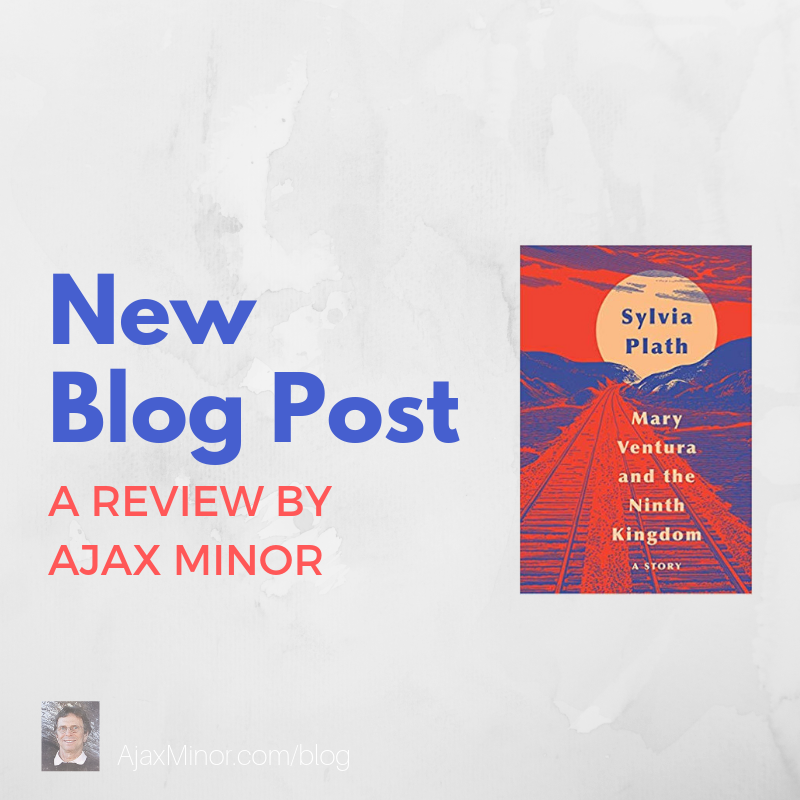
First, let me clear up any misunderstanding concerning my opinion of Sylvia Plath. She was a genius and is my favorite lyric poet of all time. My favorite work in literature is the Iliad, but epic poetry is a a different duck.
I’ve often written here that writers should explore major genres outside of their own specialty. I prefer the novel but feel the short story encourages economy and poetry allows writers to expand their literary vocabulary in unconventional ways. A few months ago I read an article by the critic Parul Sehgal about the newly released, previously unpublished short story by Ms. Plath, ‘Mary Ventura and the Ninth Kingdom.’ Sehgal wrote about its publication that “No news could be more disheartening to a true Plath fan.” Respectfully I disagree.
As I said, it’s important for writers to experiment with other major genres. I don’t expect them to exhibit the same facility, or brilliance, with major genres outside of their chosen literary form. But it can be instructive to the reader, as much as to the writer, to observe the experiment. It may even lead to a greater appreciation of the author in their chosen literary category.
Sehgal had felt ‘Mary’ to be heavy handed, even clumsy. She felt description to be overly ‘elaborate’, and the use of the ‘sinister mood’ set by the ubiquitous color red I assumed displayed the ‘heavy hand.’ On a first read, while I did not agree with Ms Sehgal’s characterization of the prose, I found it a solid effort by Plath. Then, in fairness and prodded by Sehgal’s review, I reread Plath’s story.
I found her descriptions at the beginning of the journey lovely and appropriate. They lent a feeling of normalcy to the trip and put the reader, as the setting did Mary, “in soft ease.” Where is this going, I wondered, but like Mary I simply settled in.
Description. There is a variety that is over stuffed and ‘purple.’ But description done well, even if highly detailed, can work well. No better example than Anne Rice. I’m not a big fan of horror but on a trip to New Orleans toured the city and ended up reading the ‘Mayfair Witch’ trilogy, which I enjoyed immensely. Rice’s detailed descriptions put the reader directly into both the scene and the action. Funny thing was Rice may have described the same room several times in the same way over the course of the series, but I never grew tired of reading it. After all, if I admire Goya’s ‘Third of May 1808,’ I will come back to it again and again. Hell, I’ve read ‘War and Peace’ a half dozen times.
But as the story unfolded and a sense of panic set in, for both Mary and the reader, Plath’s ‘nightmare imagery’, as Sehgal describes Plath’s extraordinary talent with tropes, began to emerge. Plath’s genius lay, I think, in the trope. And true genius with that form of expression lies in a paradox. When deconstructed, a brilliant trope makes little sense, objectively. From ‘Mary:’ “His eyes were black, bottomless, but flecked now with cold spots of laughter.” I get black and bottomless. But what in hell are cold spots of laughter? There is no such thing, objectively, but we know, feel, exactly what the author means. Plath writes that the “train wheels clucked like round black birds.” This, deconstructed, does make perfect sense and is quite beautiful. Then, as Mary escapes, Plath hits us with another masterstroke: the train is “rumbling away into the frozen core of the earth with a sound like sunken thunder.” My god, ‘sunken thunder!’ I cannot explain the phenomenon to you but instinctively I feel its message.
Sehgal writes that the story is “stirring, in sneaky, unexpected ways.” And THIS is what I found ‘disheartening.’ I write fantasy and the most unfortunate aspect of ‘Mary Ventura’ is that Plath didn’t ravel a full tale out of these exciting threads in the storyline. But, hey, Plath was a poet. I write some doggerel which you can sample on this site. And as I said I love the Iliad. But I don’t expect to be writing an epic poem any time soon.
About the review, I would have to say that one disappointment for me was that of eleven paragraphs, only four were about the short story itself. It deserved more.
Finally, I will admit that as a prose author I keep a copy of Plath’s ‘Ariel’ close at hand at all times. It reminds me what I can aspire to occasionally. There are a few prose authors that mastered the trope; and we must remind ourselves that we are not writing poetry and can’t expect to come up with brilliant figures of speech all the time. As an aside I would recommend John Cheever’s Collected Works both for pure storytelling and a masterful use of metaphor
Finally, finally, buy “Mary Ventura.” Pricey on Kindle but worth the ten bucks. And do buy ‘Ariel.’ The poem I come back to again and again is ‘Morning Song.’ You will too.